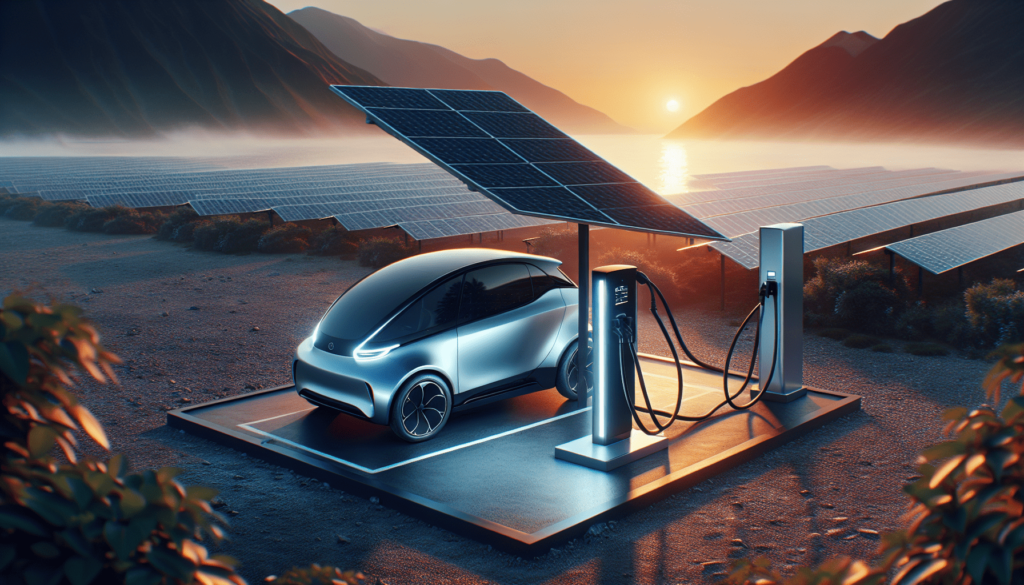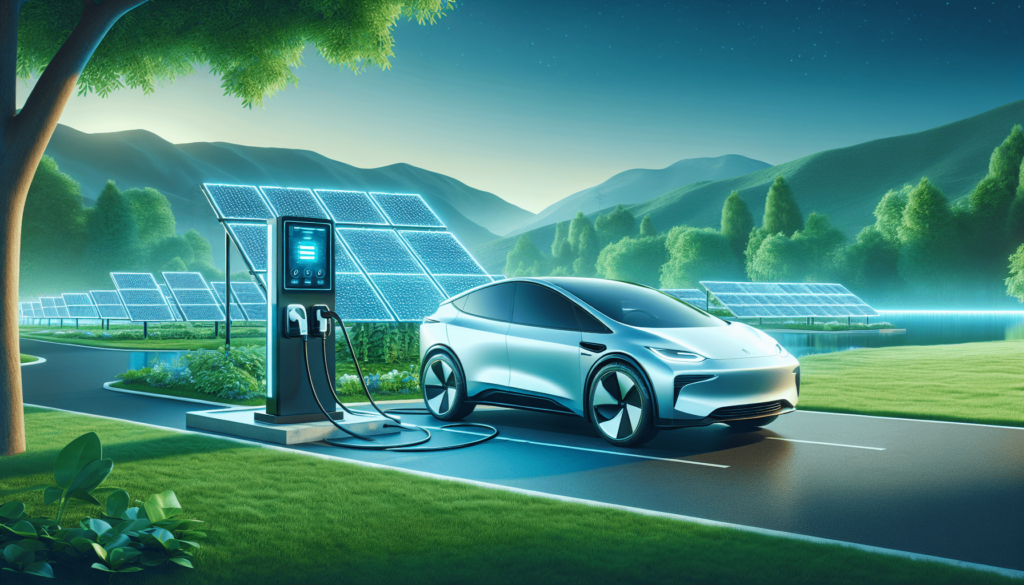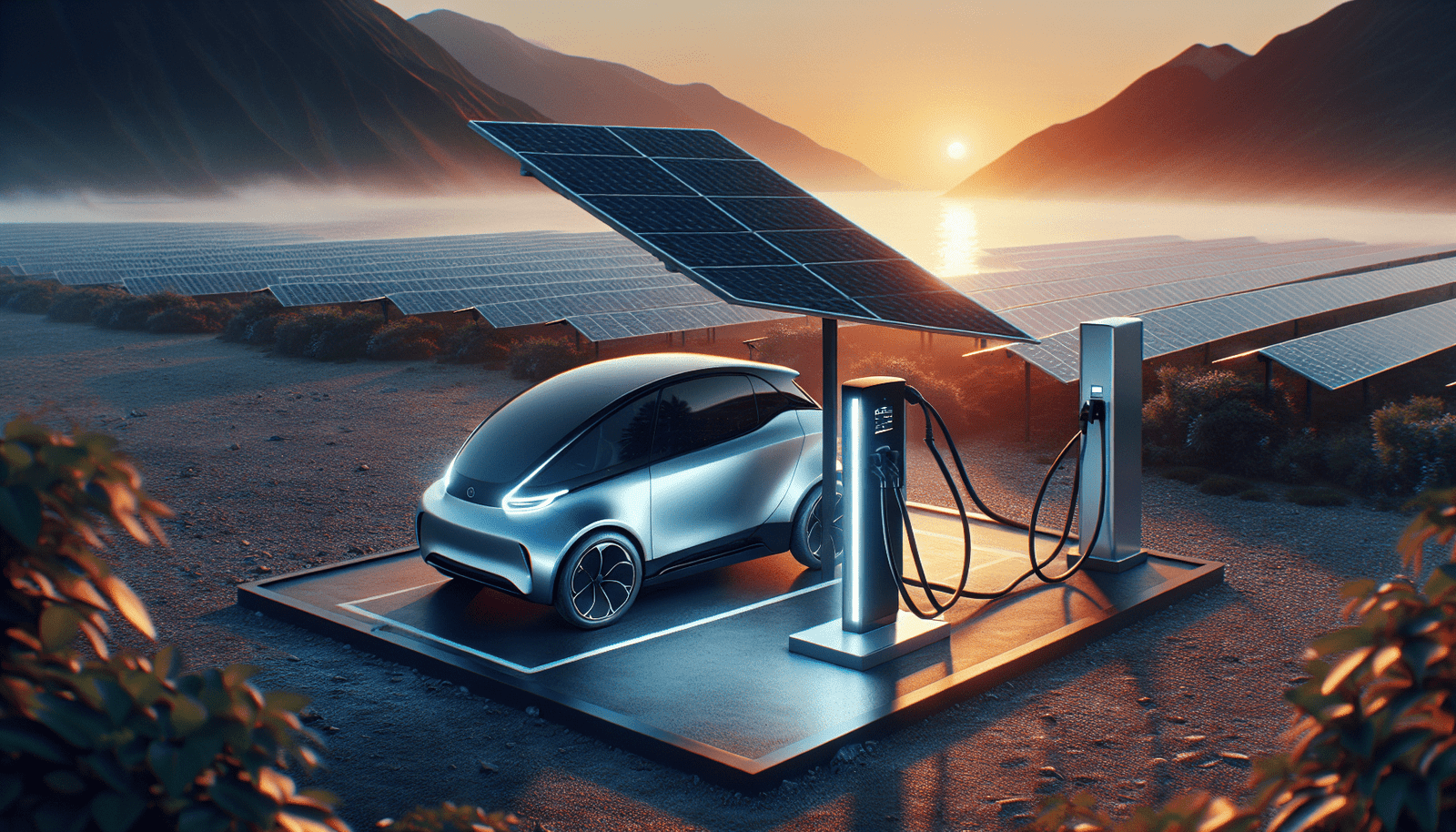Today, you’ll learn all about how solar charging technology is being integrated into electric vehicles (EVs). This innovative technology allows vehicle owners to harness the power of the sun to charge their EVs, reducing their carbon footprint and saving money on energy costs. From solar panels on the vehicle’s roof to integrated charging systems, the possibilities for solar-powered EVs are endless. Get ready to explore the exciting world of solar charging technology in EVs! How Is Solar Charging Technology Being Incorporated Into EVs?
Have you ever wondered how exactly solar charging technology is being integrated into electric vehicles (EVs)? In this article, we will explore the various ways in which solar charging is being utilized in EVs to harness the power of the sun and reduce our reliance on traditional charging methods. Let’s dive in and uncover the exciting innovations in solar charging technology for EVs!

The Basics of Solar Charging for EVs
Before we delve into the specifics of how solar charging technology is incorporated into EVs, let’s first understand the basics of how solar energy is harnessed for power generation. Solar panels, or photovoltaic (PV) cells, are made up of semiconducting materials that convert sunlight into electricity through the photovoltaic effect. These solar panels can be mounted on various surfaces, such as rooftops or the exterior of vehicles, to capture sunlight and generate electricity.
Benefits of Solar Charging for EVs
Did you know that incorporating solar charging technology into EVs has numerous benefits? Not only does it provide a renewable and sustainable source of energy, but it also reduces operating costs for EV owners by decreasing the reliance on grid electricity. Additionally, solar charging can extend the driving range of EVs by continuously replenishing the battery with solar power, especially in sunny regions with abundant sunlight.
Integration of Solar Panels on EVs
One of the primary ways in which solar charging technology is incorporated into EVs is through the installation of solar panels on the exterior of the vehicle. These solar panels can be integrated into the roof, hood, or even windows of the EV to capture sunlight and convert it into electricity. The generated solar power is then used to charge the EV’s battery, reducing the need for grid electricity.
Types of Solar Panels Used in EVs
There are several types of solar panels used in EVs, each with its own advantages and disadvantages. The most common type of solar panel used in EVs is monocrystalline silicon panels, known for their high efficiency and durability. Other types of solar panels, such as thin-film solar panels, are lighter and more flexible, making them suitable for curved surfaces on EVs.
Efficiency of Solar Panels on EVs
When it comes to the efficiency of solar panels on EVs, it is essential to consider factors such as the size of the solar panel, the angle of installation, and the amount of sunlight exposure. Generally, solar panels on EVs have a lower efficiency compared to stationary solar installations due to the limited surface area available on the vehicle. However, advancements in solar panel technology are continuously improving efficiency and power generation.
Solar Roof Systems for EVs
Another innovative way in which solar charging technology is integrated into EVs is through the use of solar roof systems. These systems consist of solar panels that are seamlessly integrated into the roof of the EV, providing a continuous source of solar power to charge the battery. Solar roof systems are gaining popularity among EV manufacturers as a practical and eco-friendly solution for harnessing solar energy.
Benefits of Solar Roof Systems
Solar roof systems offer several benefits for EV owners, including the ability to charge the battery while the vehicle is parked or in motion. This continuous charging capability can increase the driving range of the EV and reduce the need for frequent stops at charging stations. Additionally, solar roof systems contribute to reducing carbon emissions and promoting sustainable transportation.
Challenges of Solar Roof Systems
Despite the numerous benefits of solar roof systems for EVs, there are some challenges that need to be addressed. One of the main challenges is the limited surface area available on the roof of the EV to accommodate sufficient solar panels for optimal power generation. Additionally, the cost of integrating solar roof systems into EVs can be prohibitive for some consumers, which may hinder widespread adoption.
Solar Charging Stations for EVs
In addition to integrating solar panels directly onto EVs, solar charging technology is also being incorporated into charging stations for EVs. These solar charging stations are equipped with solar panels that generate electricity to charge EVs, providing a greener alternative to traditional grid electricity. Solar charging stations are becoming more prevalent as the demand for sustainable transportation options continues to grow.
Advantages of Solar Charging Stations
Solar charging stations offer several advantages for EV owners and the environment. By harnessing solar energy to charge EVs, these stations reduce the carbon footprint of transportation and promote clean energy usage. Solar charging stations also help mitigate the strain on the grid during peak charging hours, as they generate electricity locally without relying on the power grid.
Implementation of Solar Charging Stations
The implementation of solar charging stations involves strategically locating them in areas with high EV traffic and ample sunlight exposure. These stations are typically equipped with solar canopies or arrays to maximize solar power generation and provide shade for vehicles during charging. Some solar charging stations are integrated into existing infrastructure, such as parking lots or roadside rest areas, to make charging more accessible to EV owners.

Future Trends in Solar Charging Technology for EVs
As technology continues to advance, the future of solar charging for EVs looks promising with several emerging trends and innovations on the horizon. From improved efficiency of solar panels to enhanced integration of solar charging systems, the future of solar charging technology for EVs is bright. Let’s explore some of the exciting trends shaping the future of solar charging for EVs.
Increased Efficiency of Solar Panels
Advancements in solar panel technology are driving increased efficiency and power generation for solar charging systems on EVs. Researchers are developing new materials and manufacturing techniques to boost the efficiency of solar panels, enabling them to capture more sunlight and convert it into electricity. High-efficiency solar panels will play a crucial role in maximizing the solar charging capacity of EVs in the future.
Integration of Energy Storage Systems
The integration of energy storage systems, such as batteries or supercapacitors, with solar charging technology is another trend shaping the future of solar charging for EVs. These energy storage systems can store excess solar power during daylight hours and discharge it to charge the EV’s battery at night or when sunlight is limited. By coupling solar charging with energy storage, EVs can achieve greater energy independence and sustainability.
Vehicle-to-Grid (V2G) Integration
Vehicle-to-Grid (V2G) integration is an emerging trend that enables EVs to not only charge from solar power but also discharge electricity back to the grid when needed. This two-way flow of electricity benefits both the EV owner and the grid by providing additional energy storage capacity and grid stability. V2G integration holds the potential to revolutionize the way we think about energy storage and distribution in the future.
Conclusion
In conclusion, solar charging technology is revolutionizing the way we power electric vehicles by harnessing the renewable energy of the sun. From integrating solar panels onto EVs to implementing solar charging stations, the possibilities for solar charging technology in EVs are endless. As technology continues to advance, we can expect to see even more innovative solutions and trends emerge in the realm of solar charging for EVs. So, next time you hit the road in your EV, remember that the power of the sun is at your fingertips, providing a sustainable and eco-friendly way to charge your vehicle.

